UK News
-
 VisitBritain releases 50-page inclusivity guide, discourages use of certain terms
VisitBritain, a prominent tourism agency, has distributed a comprehensive guide outlining inclusive language practices, advising against the use of terms like "blacklist," "man hours,"Read More...
VisitBritain releases 50-page inclusivity guide, discourages use of certain terms
VisitBritain, a prominent tourism agency, has distributed a comprehensive guide outlining inclusive language practices, advising against the use of terms like "blacklist," "man hours,"Read More... -
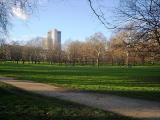 Weather forecast: UK set to bask in sunshine as miserable weather subsides
As the days progress, Britain is poised to embrace warmer temperatures, with the mercury climbing above 20C. The dreary rain and windy conditions will soon become a distant memory asRead More...
Weather forecast: UK set to bask in sunshine as miserable weather subsides
As the days progress, Britain is poised to embrace warmer temperatures, with the mercury climbing above 20C. The dreary rain and windy conditions will soon become a distant memory asRead More... -
 Purchasing a first home poses greater challenge for singles
Buying a first home is a significant milestone for many, but for individuals navigating the journey solo, the hurdles are even higher.Read More...
Purchasing a first home poses greater challenge for singles
Buying a first home is a significant milestone for many, but for individuals navigating the journey solo, the hurdles are even higher.Read More... -
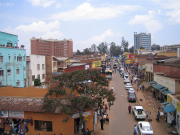 Irish government seeks to redirect asylum seekers to UK
The Taoiseach, Simon Harris, has urged Ireland's justice minister, Helen McEntee, to introduce legislation enabling the return of asylum seekers to the UK. This initiative comes in response toRead More...
Irish government seeks to redirect asylum seekers to UK
The Taoiseach, Simon Harris, has urged Ireland's justice minister, Helen McEntee, to introduce legislation enabling the return of asylum seekers to the UK. This initiative comes in response toRead More... -
 Government Work Scheme surpasses expectations, reflecting Britain's fresh approach to welfare
Newly released data from the Department for Work and Pensions (DWP) reveals an impressive achievement in the realm of job training and placement: nearly 100,000 workplace trainingRead More...
Government Work Scheme surpasses expectations, reflecting Britain's fresh approach to welfare
Newly released data from the Department for Work and Pensions (DWP) reveals an impressive achievement in the realm of job training and placement: nearly 100,000 workplace trainingRead More...

Culture
-
 Gustav Klimt portrait sells for £25.7 million at Vienna auction
A long-lost portrait by Gustav Klimt, depicting a young woman, fetched a staggering 30 million euros (£25.7 million) at an auction held in Vienna on Wednesday.Read More...
Gustav Klimt portrait sells for £25.7 million at Vienna auction
A long-lost portrait by Gustav Klimt, depicting a young woman, fetched a staggering 30 million euros (£25.7 million) at an auction held in Vienna on Wednesday.Read More... -
 Rishi Sunak: remembering those lost in terror attack
In his Passover message to the Jewish community, Prime Minister Rishi Sunak acknowledges the somber reality that "for too many families, there will be empty seats" at the Seder table thisRead More...
Rishi Sunak: remembering those lost in terror attack
In his Passover message to the Jewish community, Prime Minister Rishi Sunak acknowledges the somber reality that "for too many families, there will be empty seats" at the Seder table thisRead More... -
 Co-op Live: Manchester's new arena opens with high capacity and ambitions
A monumental addition to Manchester's entertainment landscape, the new £365m Co-op Live arena is poised to claim the title of the largest indoor arena in the UK. Nestled beside ManchesterRead More...
Co-op Live: Manchester's new arena opens with high capacity and ambitions
A monumental addition to Manchester's entertainment landscape, the new £365m Co-op Live arena is poised to claim the title of the largest indoor arena in the UK. Nestled beside ManchesterRead More... -
 Brontë birthplace unveils open day prior to renovation
The birthplace of the renowned Brontë sisters is set to welcome visitors for a special glimpse inside before embarking on a significant refurbishment.Read More...
Brontë birthplace unveils open day prior to renovation
The birthplace of the renowned Brontë sisters is set to welcome visitors for a special glimpse inside before embarking on a significant refurbishment.Read More... -
 Taylor Swift's 'The Tortured Poets Department' smashes Spotify record
Taylor Swift's latest album, "The Tortured Poets Department," has shattered Spotify's record for the most-streamed album in a single day, the platform has announced. Not only did Swift'sRead More...
Taylor Swift's 'The Tortured Poets Department' smashes Spotify record
Taylor Swift's latest album, "The Tortured Poets Department," has shattered Spotify's record for the most-streamed album in a single day, the platform has announced. Not only did Swift'sRead More... -
 Historic London pub, linked to Royalty, ravaged by fire: a heartbreaking loss
A renowned London pub, steeped in history dating back possibly to the 16th century, has suffered extensive damage in a devastating fire. The Burn Bullock, a grade II-listed establishmentRead More...
Historic London pub, linked to Royalty, ravaged by fire: a heartbreaking loss
A renowned London pub, steeped in history dating back possibly to the 16th century, has suffered extensive damage in a devastating fire. The Burn Bullock, a grade II-listed establishmentRead More... -
 Salvator Rosa painting stolen from Oxford, recovered in Romania, and returned to UK
A painting valued at EUR 2 million, stolen from an art gallery at Oxford University approximately four years ago, has been recovered in Romania and returned to UK judicial authorities,Read More...
Salvator Rosa painting stolen from Oxford, recovered in Romania, and returned to UK
A painting valued at EUR 2 million, stolen from an art gallery at Oxford University approximately four years ago, has been recovered in Romania and returned to UK judicial authorities,Read More... -
 Plans to demolish former Museum of London site put on pause
A last-minute intervention from Levelling Up Secretary Michael Gove has halted plans to demolish the former Museum of London site.Read More...
Plans to demolish former Museum of London site put on pause
A last-minute intervention from Levelling Up Secretary Michael Gove has halted plans to demolish the former Museum of London site.Read More... -
 June’s London Fashion Week returns with fresh concept
The British Fashion Council has unveiled an innovative approach for the upcoming London Fashion Week in June, aiming to spark a cultural phenomenon. Set to take place fromRead More...
June’s London Fashion Week returns with fresh concept
The British Fashion Council has unveiled an innovative approach for the upcoming London Fashion Week in June, aiming to spark a cultural phenomenon. Set to take place fromRead More... -
 London's inaugural Taiwanese culture festival explores island's identity and history
London's vibrant Notting Hill district is about to experience a taste of Taiwanese culture with the launch of the 16-day Taiwan Festival on Friday, April 12.Read More...
London's inaugural Taiwanese culture festival explores island's identity and history
London's vibrant Notting Hill district is about to experience a taste of Taiwanese culture with the launch of the 16-day Taiwan Festival on Friday, April 12.Read More... -
 Soho showcase: The Art of Banksy unveils London's largest collection
The largest collection of original Banksy artworks is set to make its debut in London's Soho, featuring over 150 pieces from the enigmatic Bristol-based artist. Opening at 100 CharingRead More...
Soho showcase: The Art of Banksy unveils London's largest collection
The largest collection of original Banksy artworks is set to make its debut in London's Soho, featuring over 150 pieces from the enigmatic Bristol-based artist. Opening at 100 CharingRead More... -
 Taylor Swift joins billionaire elite: a look at the wealthiest of 2024
Taylor Swift has ascended to the ranks of the world's wealthiest individuals, marking her debut on the billionaire list alongside luminaries such as Elon Musk. This revelation comes courtesy of aRead More...
Taylor Swift joins billionaire elite: a look at the wealthiest of 2024
Taylor Swift has ascended to the ranks of the world's wealthiest individuals, marking her debut on the billionaire list alongside luminaries such as Elon Musk. This revelation comes courtesy of aRead More... -
 JK Rowling challenges police to "arrest her" amid Twitter controversy surrounding Scotland's Hate Crime Act
The Hate Crime and Public Order Act has officially taken effect in Scotland, sparking a fiery debate over free speech and expression. At the center of this controversy is renowned authorRead More...
JK Rowling challenges police to "arrest her" amid Twitter controversy surrounding Scotland's Hate Crime Act
The Hate Crime and Public Order Act has officially taken effect in Scotland, sparking a fiery debate over free speech and expression. At the center of this controversy is renowned authorRead More...

British Queen celebrates
Most Read
- Teen held after US woman killed in London stabbings
- Heave-ho Harry! Prince prepares to join the walking wounded in ice trek to North Pole
- Football: Farhad Moshiri adamant Everton deal above board
- "Master of English Style". Interview with Designer Lydia Dart
- Letter to the Financial Times from Lord Mayor Alderman Michael Bear
World News
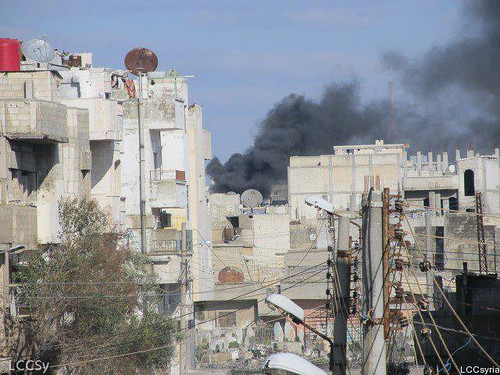
China called for an end to violence in Syria Sunday as the regime of Bashar al-Assad sparked international outrage by blocking aid from reaching the battered Baba Amr flashpoint in Homs city.
As more bloodshed was reported across Syria, Britain and Turkey joined the outcry, accusing the regime of committing a crime by barring Red Cross convoys from entering Baba Amr for the second day.
China, which twice joined Russia in blocking UN Security Council resolutions against Syria's lethal crackdown on dissent, urged all parties in Syria to "unconditionally" end the violence.
Xinhua news agency cited a foreign ministry statement attributed to an unnamed official calling for dialogue between the Syrian regime and those expressing "political aspirations."
But the official reportedly added: "We oppose anyone interfering in Syria's internal affairs under the pretext of 'humanitarian' issues.'"
As condemnation spiralled, the bodies of US reporter Marie Colvin and French photographer Remi Ochlik were flown back to Paris overnight from Damascus.
Relatives of Ochlik were there to meet his coffin as the regular Air France flight, via Amman, touched down at Charles de Gaulle airport in the French capital, an airport source said.
The two western journalists were killed in a rocket attack in the rebel Baba Amr neighbourhood of Homs on February 22.
Colvin's body was expected to be flown on to her native United States on Monday or Tuesday, according to a representative of her newspaper, The London Sunday Times.
French reporter Edith Bouvier of Le Figaro newspaper and British photographer Paul Conroy were wounded in the attack that killed their two colleagues.
Bouvier, 31, and photographer William Daniels, 34, who was not hurt in the rocket attack, have already been smuggled out of Homs by activists to Lebanon and on to Paris.
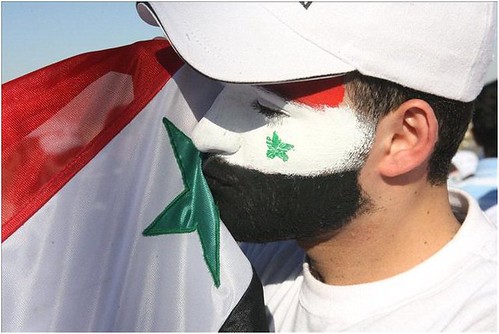
Syrian security forces on Sunday flooded a tense neighbourhood where a mourner was shot dead in the largest anti-regime rally seen in Damascus, activists said, blunting calls for a "day of defiance."
With protesters more emboldened in Damascus after 11 months of revolt which has largely escaped the city, President Bashar al-Assad's regime also came under regional pressure as Egypt joined other Arab League states in recalling its ambassador.
And the top US military officer warned on Sunday that intervention in Syria would be "very difficult" and said it would be "premature" to arm the opposition movement.
Although the security presence thwarted attempts to stage new protests in Mazzeh district, scene of a Saturday funeral that became a huge anti-regime rally, business there ground to a halt.
Mohammed Shami, a spokesman for activists in Damascus province, said most shops were shut in Mazzeh as well as in the Barzeh, Qaboon, Kfar Sousa and Jubar districts.
Student demonstrations had been expected in Mazzeh but security forces were stationed around schools, he said.
"Security forces are heavily deployed throughout Mazzeh," Shami said.
Another activist, Abu Huzaifa from the Mazzeh Committee, said police forced the family of Samer al-Khatib, 34, who died after being shot in the neck during the mass funeral on Saturday, to bury him in a small ceremony earlier than planned, in an apparent move to prevent protests.
Student protests however erupted after school in other areas of Damascus, including the districts of Al-Hajar Al-Aswad, Midan, Jubar and Barzeh, according to Shami.
In central Damascus shops opened as usual, witnesses said, while state television showed live interviews from Mazzeh with people who claimed life was normal there.
Deeb al-Dimashqi, a member of the Syrian Revolution Council based in the capital, told AFP earlier that "huge demonstrations" were expected, but added that security forces had imposed a tight clampdown.
In a message to Damascus residents on the "Syrian Revolution 2011" Facebook page, activists said: "The blood of the martyrs exhorts you to disobedience," after more than 6,000 deaths since anti-regime protests erupted in March, according to activist estimates.
Activists and official media reported at least 14 people killed on Sunday.
A "terrorist group" shot dead prosecutor Nidal Ghazal and judge Mohammed Ziyadeh and their driver in the northwestern province of Idlib, the official SANA news agency reported.
Four people, including a student, were killed and three wounded when gunmen fired on a bus in the central province of Hama, SANA said.
Security forces shot dead a woman when they stormed the town of Sukhna in Homs province as they hunted activists, the Britain-based Syrian Observatory for Human Rights said in a statement.
It also said that a man was shot dead at a checkpoint in the northern province of Aleppo.
A lawyer was shot dead as troops stormed the town of Al-Ashara in the province of Deir Ezzor, the Syrian Observatory said.
An army deserter was killed in Bab Sbaa in Homs, while three troopers were killed in a gunfight with deserters in Dael village in Daraa province, the southern cradle of dissent, the Observatory said.
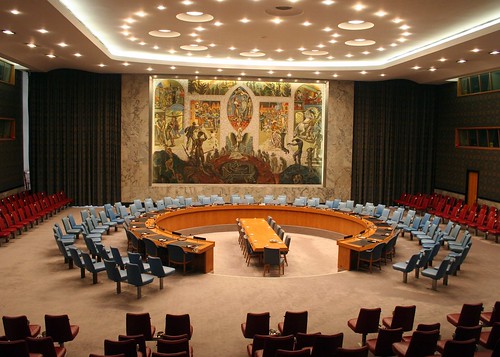
Outrage grew on Sunday after Russia and China blocked a UN Security Council resolution condemning Syria for its crackdown on protests, with the opposition saying it handed the regime a "licence to kill."
Saturday's rare double veto drew swift condemnation from world powers, with Washington saying it was "disgusted."
Russia blamed Western powers for the Security Council's failure to pass the resolution, saying they had failed to make an additional effort for consensus.
"The authors of the draft Syria resolution, unfortunately, did not want to undertake an extra effort and come to a consensus," Deputy Foreign Minister Gennady Gatilov wrote on Twitter.
The failed resolution followed widespread disgust at what the opposition Syrian National Council (SNC) labelled a "massacre" overnight Friday in the central flashpoint city of Homs and a spiralling death toll.
Activists and residents had reported more than 200 civilian deaths, including women and children, during a massive assault by regime forces there.
On the ground, activists on Sunday reported another 60 people killed in Syria, adding to the body count of one of the bloodiest weekends since the uprising against Assad's regime erupted almost 11 months ago.
Opposition groups say at least 6,000 people have now been killed in Syria since last March.
The surge of violence coupled with the second UN double veto in four months triggered a wave of international outrage at the failure to reach a common stand at the United Nations.
The SNC said in a hard-hitting statement that "Syrians and others around the world" had looked to the Security Council to issue a strongly worded resolution.
"The SNC holds both governments accountable for the escalation of killings and genocide, and considers this irresponsible step a licence for the Syrian regime to kill without being held accountable," it said of Russia and China.
US ambassador to the UN Susan Rice said Russia and China "remain steadfast in their willingness to sell out the Syrian people and shield a craven tyrant."
The veto controversy comes ahead of a Tuesday visit to Damascus by Russian Foreign Minister Sergei Lavrov and Russia's Foreign Intelligence Service (SVR) chief Mikhail Fradkov for talks with Assad.
"Russia strongly intends to achieve a rapid stabilisation of the situation in Syria through the rapid implementation of much-needed democratic reforms," the Russian foreign ministry said in a statement Sunday.

William Hague has called for a stepping up of the fight against Somali-based terrorism as he became the first British foreign secretary to visit the war-torn state for 20 years.
His arrival in the capital Mogadishu amid tight security marked the start of a major diplomatic push to bring stability to a country he described as "the world's most failed state".
Mr Hague said recent gains by the 10,000-strong African Union force in the country (Amisom) had driven back the radical Islamist group al Shabaab from the capital. But with much of the south of the country still controlled by the organisation, which has links to al Qaida, he said there must be no let-up in the pressure.
Britain is hosting a major conference on Somalia in London later this month, attended by representatives of 50 nations in international organisations. Mr Hague promised that counter-terrorism would be high on the agenda as well as tackling piracy and Somalia's deep humanitarian problems.
"One of the objectives of our conference in London is to strengthen counter-terrorism co-operation to make it easier for countries in this region to disrupt terrorist networks, to disrupt their financing and the movement of potential terrorists," he said.
In 2010, MI5 director-general Jonathan Evans warned it was "only a matter of time" before terrorists trained in Somali camps inspired acts of violence on the streets of the UK. However, ministers believe the success of the Amisom offensive last August in driving al Shabaab from Mogadishu has opened up a window of opportunity.

Pakistan on Wednesday hit out angrily at a leaked NATO report accusing its spies of secretly aiding the Afghan Taliban, saying that pre-dawn air strikes killed at least 20 local Taliban fighters.
Pakistan's alliance with the United States and NATO plummeted to an all-time low after US air strikes killed 24 Pakistani soldiers on November 26 and Islamabad has since shut its Afghan border to NATO supply convoys.
Relations with Afghanistan are also notoriously frosty over mutual blame for insurgencies plaguing both countries, but top-level talks in Kabul on Wednesday had been aimed at charting new cooperation.
But the leaked NATO document claims that Islamabad, via Pakistan's ISI intelligence agency, is "intimately involved" with the insurgency and that the Taliban assume victory is inevitable once Western troops leave in 2014.
The BBC said the report was based on material from 27,000 interrogations of more than 4,000 captured Taliban and Al-Qaeda operatives.
"Pakistan's manipulation of the Taliban senior leadership continues unabatedly," the report was quoted as saying.
Taliban captives said Islamabad was using a web of intermediaries and spies to provide strategic advice to the Taliban on fighting US and NATO troops.
Related article: Pakistan jet strike kills 20 Taliban
"This is frivolous, to put it mildly. We are committed to non-interference in Afghanistan and expect all other states to strictly adhere to this principle," Pakistani foreign ministry spokesman Abdul Basit told AFP.
A senior security official condemned the leak, as reported by the BBC, which also broadcast a documentary "Secret Pakistan" last year accusing parts of Pakistan's intelligence service of complicity with Taliban militants.
"The report is not available, leaks not worth commenting," he told AFP.

On January
Khoroshkovskiy started his career in business early and was always reaching great results in almost all the areas of his activities. At the age of 29, he became a member of the parliament and one of the leaders of the most influential party of those times – the People’s Democratic Party. At the age of 32, he became a Minister of Economy in the first government of Viktor Yanukovych. In 2005 – 2007, he was chairing one of the largest transnational corporations – “Evrazholding” with its headquarters in
Almost all the people who I have spoken to in Kyiv highly appreciate managerial talents of Khoroshkovskiy. “He is a liberal and a manager of the modern European style, a supporter of reforms and
Experts say that it will not be easy for Khoroshkovskiy to be in the government. The Prime Minister Mykola Azarov is a man of the old school of management. He is considered to be a “lame duck” in Kyiv, and they speak about his dismissal in the nearest future. This is the last year of Azarov being a Prime Minister: this year he turns 65, and according to Ukrainian legislature this is a maximum tenure of a politician in office. Khoroshkovskiy is mentioned among the possible contenders for the post of a Prime Minister after Azarov leaves. At his time, Khoroshkovskiy voluntarily left work in the government because of the conflict with Azarov. Now they will have to work together for some time, although the previous minister of finance, Fedir Yaroshenko, was Azarov’s protégé, and Azarov tried to postpone his dismissal.

A month after he became the lonely man of Europe, Prime Minister David Cameron's efforts to win friends and influence people met with mixed results at the latest summit in Brussels.
He won a new ally when the Czech Republic joined Britain on the outside of a fiscal treaty signed by the rest of the European Union -- but then found himself embroiled in a spat with an old ally, French President Nicolas Sarkozy.
Cameron is also on a political tightrope between the EU, Britain's biggest export market, and his own party, which wants him to take a tough stance against the bloc or even leave it altogether.
So, it was not the firebrand Cameron of December on show Monday but a more subdued figure keen to appease other leaders -- and receiving a kiss on the cheek from German Chancellor Angela Merkel for his pains.
He kept up his rhetoric about ensuring that Britain's interests are not hurt by the new treaty.
"We will be watching like a hawk," he said, reiterating calls for eurozone countries to recapitalise their banks, deal with Greece's debt drama and establish a financial "firewall".
Cameron also insisted that he had kept Britain out of a treaty that it did not need or want.
He received some vindication for his stance when the Czechs decided that they too could not endorse the fiscal pact.
But he had already backed down on an earlier threat made in December to veto the use of EU institutions by other countries that join the pact.
He had also softened his language from the previous week, when he launched a stinging attack on his EU partners, slammed the eurozone as uncompetitive and branded as "madness" a planned transaction tax.
Cameron had also picked a fight over the European Court of Human Rights last week, saying it needed urgent reform to stop it overriding the decisions of democratic member nations.
Tensions rose to the surface again when Cameron and Sarkozy took digs at each others' countries.
First Sarkozy said in a speech on Sunday that Britain had "no industry" left.
That prompted Cameron to say that the French president's "mad" plans for a financial transactions tax would drive French banks over to Britain.
"In the spirit of this healthy competition with France, if France goes for a financial transactions tax then the door will be open and we'll be able to welcome many more French banks, businesses and others to the UK," Cameron said.
But asked if he would be backing the French president's re-election this year -- as Merkel's party said she would -- Cameron tried to play it down lightheartedly.
"I am a big supporter and friend of Nicolas Sarkozy and I wish him well," he said.
"Every now and again he says something I don't agree with -- today when he said that Britain is short of industry, we actually have a larger industrial sector than France."

Germany is proposing that Greece should temporarily cede sovereignty over tax and spending decisions to a powerful eurozone budget commissioner before it can secure further bailouts, an official in Berlin has said.
The initiative is being discussed among the 17-nation currency bloc's finance ministers because Greece has repeatedly failed to fulfil its commitments under its current multi-billion pound lifeline, the official said.
The proposal foresees a commissioner holding a veto right against any budgetary measures and having broad surveillance ability to ensure that Greece will set its priorities on repaying its debt as scheduled, the official said.
Greece's international creditors - the so-called troika of the International Monetary Fund, the European Union and the European Central Bank - are currently negotiating another 130 billion euro rescue package for the heavily indebted country.
But German news magazine Der Spiegel cited an unnamed troika official as saying that Greece might need a total of 145 billion euros in its second bailout package amid the country's prolonged and sharp recession.
The German proposal is likely to spark controversy in Greece. A powerful budget commissioner would further diminish the political leeway of Greece's government, just as politicians there are gearing up for an election set to take place this spring.
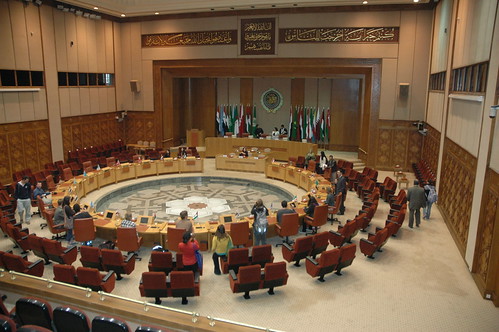
The Arab League on Saturday suspended its controversial observer mission in Syria, a day after the monitors' chief said killing had spiked this week, with the death toll approaching 200.
The announcement came as the opposition Syrian National Council said its leader would travel to New York to appeal to the UN Security Council for protection from the regime of President Bashar al-Assad.
SNC chief Burhan Ghaliun's trip comes amid a new bid by Arab and European states for UN action over the deadly 11-month crackdown on dissent hit immediate opposition from staunch Syrian ally Russia.
"The decision to suspend the Arab League mission in Syria has been taken because of the upsurge in violence, and an official announcement will be made later," an Arab League official in Cairo told AFP on condition of anonymity.
The head of the Arab League monitors said unrest had soared since Tuesday "in a significant way," especially in the flashpoint central cities of Homs and Hama and in the northern Idlib region.
The violence "does not help... to get all sides to sit at the negotiating table," General Mohammed Ahmed Mustafa al-Dabi said.
According to a tally by AFP taken from reports by the Syrian Observatory for Human Rights and official Syrian media, 193 people have been killed since Tuesday.
That compares with the figure of more than 5,400 given by the United Nations last month since anti-regime protests erupted in March.
Amid the upsurge in killing, the country's umbrella opposition group has "decided to head to the Security Council tomorrow, led by Burhan Ghaliun, to present the Syrian case... and demand protection," executive committee member Samir Neshar told an Istanbul news conference.
He spoke after the Gulf Arab states and Turkey, which have led regional condemnation of the Damascus regime, met in Istanbul and called on Assad to accept an Arab League proposal for him to step down and turn over power to his deputy before formation of a unity government.
Syria has categorically rejected the proposal.
Ministers also agreed that international efforts should focus on bringing the bloodshed to an "immediate end" and paving the way for the initiation of a political transition process in line with "legitimate demands of the people."
"We are adamant to turn the Middle East region into a basin for peace, stability and prosperity," Turkish Foreign Minister Ahmet Davutoglu said.
Deadly clashes and an ambush on a bus transporting soldiers claimed at least 15 lives on Saturday, according to activists and state media.
Rami Abdel Rahman, who heads the Britain-based Observatory, told AFP three deserters were killed in Rastan, and five soldiers were killed in similar clashes in nearby Al-Hula, also in Homs province.
The Observatory also reported fierce clashes on the outskirts of Damascus as security forces backed by tanks raided the towns of Saqba, Hamuriyeh, Jisrin and Erbin. There was no immediate word on casualties.
And an ambush on a bus near the rebel stronghold of Douma, just north of Damascus, killed seven soldiers, the official SANA news agency reported, blaming a "terrorist group."
Damascus does not recognise the scale of the protest movement, insisting instead that it is fighting "terrorist groups" seeking to sow chaos as part of a foreign-hatched conspiracy.
Elsewhere, the Observatory said a child was killed in the oil province of Deir Ezzor when a shell struck his house, and a pipeline was also ablaze in Quriah in Deir Ezzor.
At least 384 children have been among the dead in the uprising against Assad's regime, and almost the same number detained, the UN Children's Fund (UNICEF) said on Friday.

French police on Thursday arrested Jean-Claude Mas, the founder of the PIP breast implant company that sparked a global health scare by using substandard silicone, as part of a manslaughter probe.
"Jean-Claude Mas was arrested at 7:00 am and taken into custody" on the orders of an investigating judge, Marseille prosecutor Jacques Dallest told AFP.
He said the arrest was made in connection with a manslaughter investigation opened by prosecutors in the southern port city of Marseille in December and that Mas could be held in custody for up to 48 hours.
A police source told AFP that Mas was arrested at the home of his companion in the south of France.
Dallest said police were carrying out a search of his companion's home, in the town of Six Fours, for evidence in the case.



















